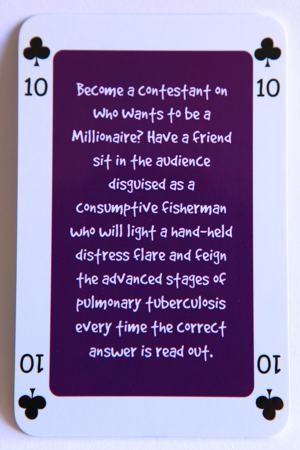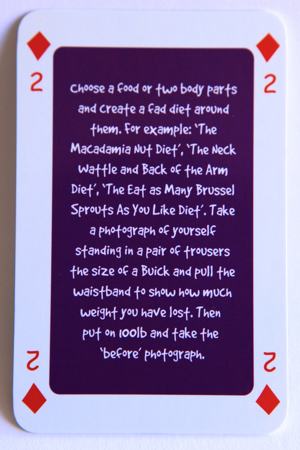Goal Setting
It is very hard to achieve a goal that has never been set.
What do you want to do with your money? (Please don’t say, “Gamble it!”) Goal setting lies at the heart of all financial decisions and, depending on how realistic your goal is, will increase your chances of living a comfortable, money-worry free life. There is nothing wrong with dreaming big, but if your goal is simply to be rich, then you risk not realising that goal and ending up unhappy.

Being rich, or having money for money’s sake, is not something you will find much info on in this course. In fact, the only time I mention becoming rich is in relation to ‘get rich quick’ schemes. And, ah, no I don’t endorse them.
There is no reliable way to get rich quick, but there are craploads of people who will tell you how to do it.
Goal setting is essential to successfully managing your finances. The more clearly-defined a goal is, the greater your chance of achieving it. Examples of financial goals are to buy: a house, a new car, a holiday, renovations, an expensive outfit, etc. We will return to goals a few times to define them more clearly and set new ones as we continue through the course.
Having financial goals is an essential element of managing your finances successfully. You must have a clear idea of what you want before you can work towards achieving it.
Your set goals must be realistic otherwise you risk your vision falling into the too hard basket.
An example of a goal is: “I want to buy a home”. An example of a clearly-defined goal which has a great chance of being realised is: “Within two years, I want to buy a two bedroom townhouse in Richmond with a small yard. To do this, I want to save up a deposit of $140,000 so that my mortgage is not too big.” This goal is very well defined and may also be realistic, depending on the person’s current level of savings and savings ability, and that of their partner (assuming they have one). And it also depends which Richmond you’re talking about – there are five of them spread across the country.
One of the best ways to achieve a large goal like a $140,000 deposit is to break it down into bite-sized pieces. So instead of just looking at the mountain of savings that is $140,000, break it down into 70 x $2,000 regular deposits into an account. If you only ever look at the enormity of the end goal you might never get started. Focussing on each step as you take it is easy, and before you know it you can look back on a growing pile of savings and take pride in what you have accomplished.
Once you have a clearly-defined and realistic goal, there are two more things it needs to become a reality. You must keenly desire the goal and imagine what it will be like when you have achieved it. These are the ingredients to success, not just in buying that home in Richmond but in any goal you wish to achieve. Do you think there has ever been an Olympian who did not imagine themselves competing at the games? Ok, except for Eric The Eel. And that well-oiled Tongan cross-country skier.
Please write down what your goals are.

Studies of high achievers in society have shown that many of them had put their goals in writing. I don’t know whether they achieved their goals because they wrote them down, or because they were the sort of people who were anal enough to write them down, but the end result is the same. And let’s face it: it can’t hurt to do so. In fact, if you make a new list of your financial goals on a regular basis you may find that it changes a bit. There’s nothing wrong with changing goals and you’ll probably find that the goals that are the most important to you will keep appearing on your list.

Like the first day of an exercise programme or the first day of a new diet, the first step in sorting out your finances will probably be the hardest step. Starting this course was your first step, which is an optimist’s way of saying, “Everything from this point is going to be easier”, or at least not as hard as what you first feared it would be.
Our first goal is to avoid gambling, or to stop gambling. I will assume, given what we have just looked at and the professional help available, that you have been able to achieve that goal.
Goal Setting Questions
What are your financial goals? What about your non-financial goals? Why did you decide to click on Financial Freedom for Gens X and Y?
Ok, these are trick questions because there are no right or wrong answers to them. And remember that you also don’t need to share your goals with others (although it may help to do so, as friends and family can help you achieve them).
PS. Always share your goals with your partner.